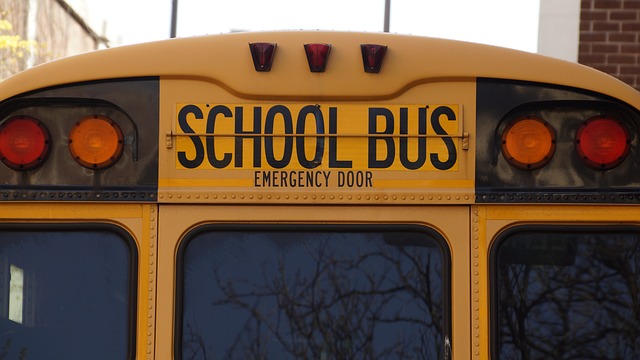The fifth-largest school district in the U.S. – Clark County School District (CCSD), encompassing Las Vegas – continues to make headlines for ongoing reported alleged abuses of children with special needs, as taxpayers sound the alarm over ethics complaints, financial deficits, and avoidable litigation expenses.
CCSD has the second-highest reports of restraints and seclusion incidents with special needs children during the 2015-2016 school year, according to a 2019 GAO report.
The U.S. Department of Education broadly defines restraint as “restricting a student’s ability to move their torso, arms, legs, or head freely,” and seclusion as “confinement alone to an area” where the child cannot leave. These practices are only to be used when a child poses imminent danger, department guidelines state. Some states prohibit restraint and seclusion methods, others legislate specific guidelines.
CCSD is responsible for more than 300,000 students and has its own police force of about 168 officers. The CCSDPD has been involved in numerous teacher abuse investigations, many of which have led to recent arrests. Teachers have been charged on multiple counts of lewdness involving a child under age 14, unlawful contact with a minor or mentally ill person, distributing child pornography or possessing child pornography, kidnapping, child abuse, sale of a controlled substance, among other charges.
Last month, a video of a former CCSD teacher allegedly abusing a student with special needs was filed with the court as key evidence in two ongoing federal lawsuits.
Las Vegas CBS News affiliate, 8 News NOW, broadcast the video showing former Kirk Adams Elementary School teacher Kasey Glass engaged in what appears to be physically restraining an autistic non-verbal child after she took away his food.
Withholding food as a form of punishment falls under the category of “aversive intervention,” which is illegal.
A CCSD spokesperson told The Center Square that Glass no longer works at the school or for the district.
But these incidents are part of an ongoing, “patterned, systematic failure” within the CCSD, attorney Marianne Lanut told The Center Square. Lanuti, who runs NVKidsLaw, has represented special education students against CCSD since 2001.
Lanuti lists the scope of failures within the CCSD, including “failure to report abuse by CCSD, to provide legal representation for parents and their children to ensure an investigation; failure to report documented abuse to the Clark County District Attorney’s Office for prosecution; failure to prevent retaliation against parents and staff for reporting abuse; failure to create an Impartial Due Process Hearing required by law; failure to permit parents to view video or other relevant evidence in possession of CCSD; and failure to prevent seclusion of nonverbal children from potential witnesses that are likely to report.”
Lanuti says the systemic failures have been, and will continue to be, litigated in the courts but “fear of litigation has not motivated” CCSD to fix the problem. Not fixing the problem costs taxpayers millions of dollars in court fees that could have otherwise gone toward education, critics across a wide spectrum, argue.
In January, CCSD reached a $1.2 million settlement in a multi-year lawsuit brought by six parents of three autistic children for alleged abuses committed by a teacher; similar lawsuits are ongoing.
The $1.2 million “was almost certainly less than half of the actual cost of the lawsuit to the district – and thus to Nevada taxpayers,” Steven Miller, senior vice president at the Nevada Policy Research Institute, says. Miller testified before the State Senate supporting a measure to install cameras in special needs classrooms. The measure went nowhere, despite parents having requested such camera installations for decades.
The Las Vegas Review-Journal estimated an additional $1 million was expected to be paid to cover plaintiff attorney fees for this one case alone, “not to exceed $500,000” and “other costs estimated at roughly $425,000” but yet to be determined at the time.
These figures exclude CCSD’s in-house financial costs, Miller adds, which could have otherwise been directed towards education and the district’s now $17 million deficit, not to mention the loss of CCSD’s “moral reputation and to the credibility of its programs and top officers.”
An ethics complaint also was lodged against CCSD Superintendent Jesus Jara this summer for expensing a $2,409 Peloton exercise bike while the CCSD cut $98 per student in education funding to mitigate its $17 million deficit, after the Democratic Legislature increased state funding for education.
Lanuti suggests that ultimately, fixing the systemic problems in CCSD will come from thorough investigations conducted by the U.S. Department of Justice or U.S. Department of Education.



Facebook
Twitter
Pinterest
RSS